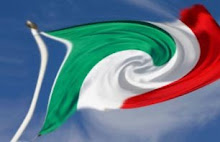
In less than one month, the following episodes happened in Italy:
- a 19-year-old Italian of Burkinian origin (he had lived in Italy since he was three) was clubbed to death in Milan by two shopkeepers, for allegedly stealing a packet of biscuits. While they were chasing and beating him, the killers repeatedly shouted negro di merda, “shitty nigger”
- a 22-year-old Ghanese was insulted and beaten by local police agents in Parma, who mistakenly exchanged him for a drug dealer out of the school where he attended evening courses. They also wrote “nigger” after his name on the envelope that notified his arrest.
- a 36-year-old Chinese man was assaulted and beaten by a group of five Italian teenagers in Rome, while he was waiting for a bus. The boys insulted him calling “cinese di merda”.
You would expect the government and local authorities to condemn these acts convincingly. They did (sort of), but always adding that those weren't hate crimes. The Berlusconi government, today with Internal Affairs minister Roberto Maroni, played down the “racism emergency”, as it's called by the media and the opposition. Hardly surprising, as the parties in goverment have played the “security” - aka “fear of immigrants” - card in the elections, and they are still portraying Italy as a country invaded by foreigners.
You don't have to be a one-world leftist to see a cause-effect relationship here. Can anybody in their right mind honestly believe that a white guy would have been clubbed to death, had he stolen some biscuits? Security has been the top issue in the media for the last eight months. Centre-right politicians – from the overtly xenophobic Northern League to the Neo-Fascists - are more popular than ever for their tough anti-immigration stance. When you feed the people with all this invasion/immigration claptrap, you foment their worst instincts. And when you deny that racism plays a role here, you condone these violent acts.
“Italians are not racist, they are brava gente, good people” is a too-often-heard sentence that has no meaning anymore. Maybe it used to be so, when immigrants were seldom to be found in a country with almost no colonial past. But in the last twenty years, Italy has seen its immigrant population soar. And in a country in economic and cultural decline, strangers are enemies. It'd take responsible political leadership to put together a national response, a “new Italian identity” for the 21st Century. But that's nowhere to be seen, at the moment.










